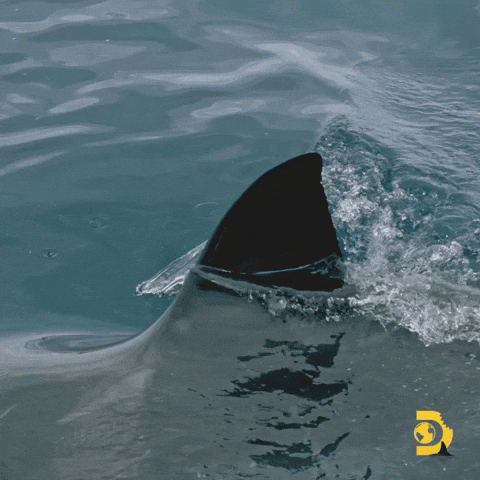In 1966, Stewart Brand started selling pin-back buttons featuring a simple question: “Why haven’t we seen a photograph of the whole Earth yet?” The activist and writer distributed the buttons across the country for 25 cents each and mailed them to congressmen, scientists, and government officials. Six years later, astronauts aboard Apollo 17 fulfilled Brand’s ask, bringing back a photograph of the bright blue orb bathed in frothy clouds. Often referred to as the “Blue Marble,” the striking image made people reconsider our role in the vast expanse of space.
Now 77 years old, Brand lives on a tugboat in Sausalito, California. A prophet for the modern environmental movement, he has amassed a cult following for his magazine, Whole Earth Catalog, and authored several books examining mankind’s impact on the planet. He runs The Long Now Foundation, a nonprofit serving as “a counterpoint to today’s accelerating culture.”
Here, our co-founder Casey Caplowe talks to one of GOOD’s biggest inspirations about his path and what he’s learned about problem solving along the way.
Casey Caplowe: When we started GOOD 10 years ago, we were seeing a lot of cultural apathy, but also saw it starting to turn. There was interest in actively engaging with the world and having a broader consciousness, but we didn’t see anyone speaking in terms that appealed to young people. When we looked at Whole Earth Catalog, it seemed you were in a similar position years earlier, trying to catalyze new ways of thinking.
Stewart Brand: When I started Whole Earth Catalog in 1968, I was in the thick of what was that era’s counterculture. Amongst the hippies, I saw romanticism, and amongst the so-called “New Left,” I saw ideology. I thought there was something missing. I’d been trained in biology at Stanford and had been an Army officer, so I embodied an engineering approach to things, which is: Instead of bitching about problems, let’s go out and solve the fucking things.
I had an idea for an L.L.Bean-like catalog of tools and techniques—something done on the cheap, which became Whole Earth Catalog. It came out with the tagline “access to tools,” with a humble statement of purpose: “We are as gods and might as well get good at it.” More recently in my book Whole Earth Discipline, I changed it to “We are as gods and have to get good at it.”
CC: I love how your thinking evolved, yet stayed so true to that early insight. For GOOD, it’s been a wild ride seeing how much the world has changed in the past decade. It pushes you to re-evaluate your role in it all. When I look back at the late ’60s and Whole Earth Catalog, it seems like perspectives were changing so quickly.
SB: After the Apollo 8 broadcast, a lot of environmental reframing occurred. The so-called modern environmental movement got rolling with events like Earth Day, and big names got involved, like Friends of the Earth. You started hearing the term “our planet,” which had never really been used that way before. It was helpful to start thinking of our human role as caretaker of a living, complicated creature, which we’re on for a while and want to be around for a while longer.
CC: As this new environmental movement took shape, did you feel you’d achieved your goals? Or as someone on the inside, did it feel like a continuous fight to see them realized?
SB: Fighting is not a mode I ever think in. Leftist terminology seems to always involve the term “struggle,” but it’s not my mode. Likewise, goals are not all that interesting to me, but pathways are. The strategic pathway I was trying to encourage with Whole Earth Catalog was one that empowered people to do pretty much anything they wanted, rather than try for one specific achievement. Religious scholar James P. Carse talks about this difference in his book, Finite and Infinite Games. In a finite game, you’re fighting to win. In an infinite game, you’re doing everything you can, not only to keep the game going, but also to keep it interesting. The infinite game is a direction. The finite game is a goal.
CC: That’s a beautiful perspective. GOOD has had some big ups and downs in the past decade, but I think we’ve done a pretty good job of being true in our direction. With The Long Now Foundation, you’re pursuing this extreme long-term endeavor. I’m curious what you’ve learned from working in that way?
SB: I was surprised to find that young people are also attracted to this inherent optimism, which is necessary to seriously think in the long-term. The various catastrophic approaches to thinking about the future that people find attractive do not reliably produce optimism. It’s like deciding which flavor of dystopia to take seriously. Is it the sixth extinction? Is it that society immolates itself because of Donald Trump, or some other thing you’re sure is killing civilization? Or can you take the idea of continuity seriously? We’ve gotten this far. That’s a pretty good sign we can keep on going.
CC: We’ve always tried to work at this intersection of idealism and pragmatism. Optimism, of course, figures in too. You have this interesting form of optimism—yes, things will go wrong, but they’ll also rebound. It can include negativity, because everything isn’t always rosy. Overall, do you think things are getting better?
SB: That question makes me think of the most wonderful book that came out in the last couple years: Steven Pinker’s The Better Angels of Our Nature, which discusses how human violence has been going down steadily per millennium, per century, per decade, per year, practically per month. Cruelty and injustice have also been going down over time. The trend is pretty damn solid. There are digressions like World War I and World War II, but if you look at this issue statistically, instead of just anecdotally, you see an amazing, very long-term, benevolent trend—which has every reason to continue.
In my particular circumstance, things look chipper, despite the fact that I’m 77 and absolutely doomed. Right now I feel good when I do CrossFit, I’m stronger than I’ve been in years, and the cognition is still in place, so far. The whole point of what I call “tragic optimism” is the realization that life goes on, but people die along the way. Any particular person you ask, “How are things?” is going to tell a very circumstantial story, quite frankly. Empires rise and fall, but civilization keeps chugging.
CC: Fair enough. Any advice you can offer us?
SB: Stay hungry, stay foolish. If it worked for Steve Jobs, it’ll probably work for you. I don’t even know what Steve really got from that, but I think that mentality helped make sure he stayed creative, disruptive, and took risks. It’s a mode I thought people who were using Whole Earth Catalog were in. They were looking forward with excitement and curiosity, which meant acknowledging their ignorance. It’s a pretty good frame of mind to be in, but one easily fallen out of. Why not make an effort to maintain it?




















 Music isn't just good for social bonding.Photo credit: Canva
Music isn't just good for social bonding.Photo credit: Canva Our genes may influence our love of music more than we realize.Photo credit: Canva
Our genes may influence our love of music more than we realize.Photo credit: Canva

 Great White Sharks GIF by Shark Week
Great White Sharks GIF by Shark Week